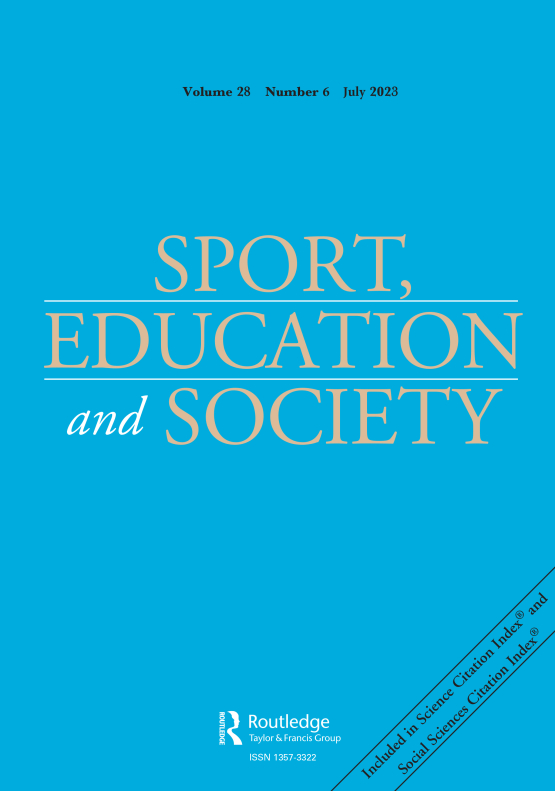Submit a Manuscript to the Journal
Sport, Education and Society
For a Special Issue on
Historicising the body in sport, health and physical education
Abstract deadline
14 June 2024
Manuscript deadline
22 December 2024

Special Issue Editor(s)
Kellie Burns,
University of Sydney
[email protected]
Felipe Hidalgo Kawada,
University of Sydney
[email protected]
Historicising the body in sport, health and physical education
Papers in this Special Issue will explore the ways in which the body was constructed in and through school-based sport, health and physical education in the nineteenth and twentieth centuries. Over this period, two significant projects –mass schooling and public health – were heavily invested in defining and managing the bodies of children, and later adolescents. Despite this, very few dedicated journal special issues or edited collections focus on historiographies of schooling/schooled bodies. Where this does exist, the interrelated projects of school sport, health education and physical education are not a central focus. The papers in this collection will highlight the connections and disjuncture between these areas of schooling and community life, but also across varied national contexts.
Sport, Education and Society (SES) is an international journal dedicated to profiling diverse content and contexts that engage physical education, sport, and health education across formal educational settings, as well as the pedagogies prevalent in familial, leisure, and sports club contexts. While this SI is particularly interested in the project of schooling (vs education more broadly), it welcomes papers that call attention to the exclusion and devaluing of some types of knowledge and educational experiences that came with the project of mass schooling around the world.
Historicising the body in school sport, health and physical education cultures is important at a time when many school-based health issues and crises are being theorised and contextualised through socio-political rationalities of the recent past, particularly neoliberalism. The papers gathered in this collection will illustrate that many of the discourses circulating in schools today, can be traced to enduring understandings of health, the body, childhood and nation-building. Schooling bodies, this collection will illustrate, has long and complex histories that intersect with changing social norms around gender, race and class. These often overlooked histories are important in rethinking the present and in expanding the methods of sociologists, educationalists and other critical scholars working in sport, health and physical education.
Looking to Publish your Research?
Find out how to publish your research open access with Taylor & Francis Group.
Choose open accessSubmission Instructions
The Special Issue will comprise eight manuscripts.
Submission Instructions:
We encourage submissions from scholars at all stages of their careers, and especially encourage early career and/or scholars outside the Global North to contribute. SES invites authors to consider the following themes and topics:
- Histories of formal school health and physical education curricula;
- Histories of school-based programs or interventions related to sport, health or physical education;
- The subjectivities (e.g. student, child, teacher, school nurse, healthy citizen), materialities (e.g. desks, measurement, recording and evaluation devices, data tables, uniforms, sporting equipment) and spatialities (e.g. gymnasium, school clinic/sick bay, field/pitch, locker room, toiletblock/bathrooms) of sport, health and PE pedagogies and cultures in schooling histories;
- Innovative methodologies in the history of sport and education that invite new ways of analysing the 19th and 20th century;
- Research that draws on a variety of types of historical evidence including curricula, photographs, media and popular cultural texts, policy documents, oral histories, etc.;
- Histories of sport, health and physical education that challenge dominant narratives about bodies and schooling from the the Global North.
Submissions are not limited to the above topics, but authors should refer to the Special Issue points when composing their articles.
To be considered for the Special Issue, we invite you to submit a 300 word abstract to the lead Guest Editor.
Final paper submissions will be a maximum of 7,500 words inclusive of references.
All submissions should follow journal guidelines and respond directly to one or more of the submission themes.
All papers will undergo blind review by a minimum of two referees.